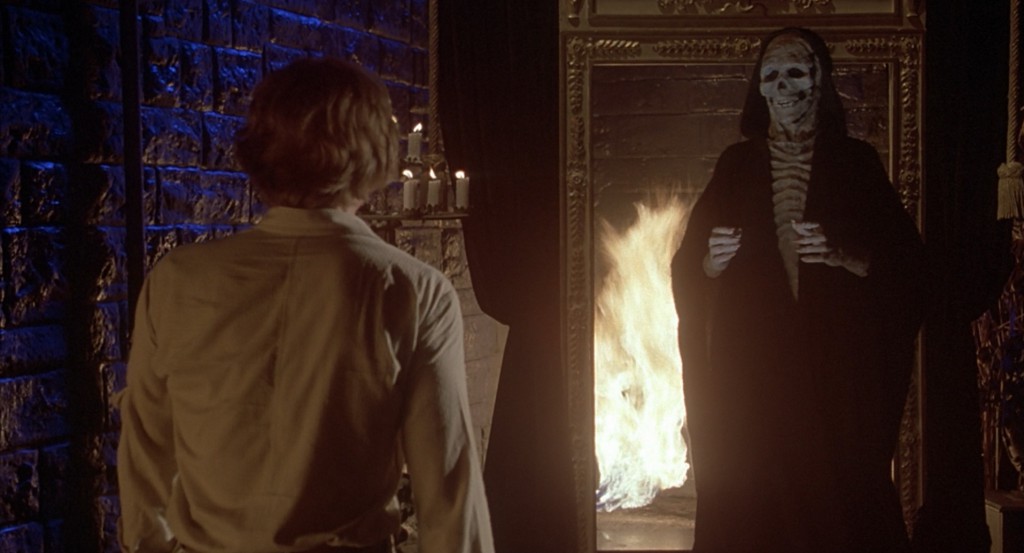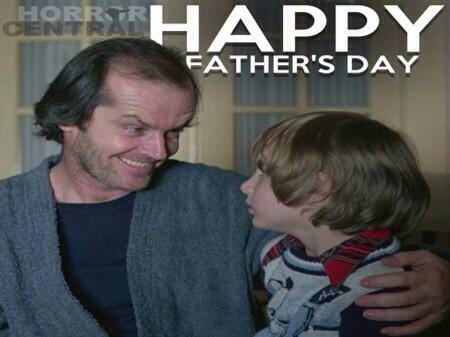Happy Pride Week, everyone! In celebration of gay pride, I’m reprinting an essay I wrote in 2009 for “The State of the Genre,” my monthly Fear Zone column all about horror. “The Monster in the Closet” is the essay that received the most attention out of all them. It shines a light on homophobia within the horror genre. It’s interesting to see how much has changed since I wrote it — I mistakenly called Poppy Z. Brite a straight author, though soon after they went into hormone therapy and changed their name to Billy Martin; trans and genderqueer folks are on my radar now in a way they weren’t then — and how much has remained the same. I still avoid message boards because they’re filled with idiots, and homophobic attitudes still exist within the genre. I do believe the latter is slowly changing, though, even if the former probably never will.
THE STATE OF THE GENRE: The Monster Outside the Closet
by Nicholas Kaufmann
In the letters column of the April 2009 issue of Rue Morgue magazine, a reader named Jerry Diego writes, “As a gay man who loves horror, I’ve rarely felt like the horror community embraces anything about us (other than killing us horribly in movies)…[yet] I know that not every horror fan is a single white male, testosterone-fuelled, T&A-loving homo-basher like every single forum of every horror site seems to suggest.”
As someone who used to frequent horror message boards before I realized life was too short to spend that much time wading through nonsense, I’ve seen firsthand the macho, anti-gay attitude that can be prevalent in the horror community. And I’m not the only one. A friend of mine was once called a “faggot” by some knuckle-dragger on a horror message board because he dared to admit he preferred the highly stylized prose of Caitlin R. Kiernan to the more bare bones, story-over-craft approach of some other writers. It doesn’t just happen on the message boards either. At the annual Gross Out Contest of any given World Horror Convention — an event that is often hilariously and quite intentionally funny in its over-the-top descriptions of grotesquerie — you’re bound to find at least one storyteller who includes gay male sex in an attempt to “gross out” the audience. I’ve even read a handful of stories that end with a male villain getting his comeuppance through rape by another male character.
Frankly, I don’t understand anti-gay sentiment anywhere in society, but in the horror genre I find it particularly head-scratching. After all, horror fiction tends to be as much about outsiders as gay and lesbian fiction is. The protagonists of both often find themselves moving through the fringes of society and pitted against forces more powerful than themselves. In the U.S. and other countries, gay and lesbian citizens frequently find themselves considered “others” by society, whether it’s being told by their neighbors and elected representatives that they don’t have the right to marry like everyone else or being attacked on the street simply because of who they are. As strange as this corollary may sound, these real-life experiences, which are echoed in gay and lesbian literature, aren’t that far off from what befalls the characters in horror fiction — whether it’s the majority deciding it has no room for the minority, such as in Richard Matheson’s I Am Legend, or the threat of being attacked or murdered for no reason other than who one intrinsically are, such as in Clive Barker’s Cabal (itself a powerful allegory for the gay outsider experience) — or really any character in a zombie movie, in danger of being killed simply because they are alive. The horror genre truly has a lot more in common with gay and lesbian literature — and by extension, gay and lesbian experiences — than these closed-minded mouth-breathers seem to realize.
Luckily, this ridiculous macho brigade is hardly the true majority in the horror genre, despite sometimes being the most vocal, at least on those wacky message boards. As a genre, horror really does embrace all points of view, and in fact there are quite a few excellent gay and lesbian authors working in the field, as well as straight authors unafraid to write sympathetic, believable gay characters. In the former category, bestselling and award-winning horror writers like Clive Barker, John Saul, Steve Berman, Lee Thomas, Douglas Clegg and author/anthologist Michael Rowe spring immediately to mind. Interestingly, each of these authors has written plenty of straight protagonists just as compassionately and convincingly as gay ones, putting to rest any misbegotten idea that gay authors only write about gay characters. When Clive Barker came out publicly in the early 1990s, it forced a sea change in the way horror was perceived by its fans. Always a somewhat conservative genre in its frequent focus on people trying to preserve their way of life against outside forces, horror’s fans changed with the times, evolved if you will, and realized there were more points of view to be mined in the genre than the typical suburban family moving into a house built on a cursed Native American burial ground.
As I mentioned, there are plenty of straight authors dealing with queer issues in the horror genre as well, either overtly or in subtext, such as Poppy Z. Brite, Anne Rice, Peter Straub, Gemma Files, Nick Mamatas, Livia Llewellyn, Nancy Kilpatrick, David Wellington, Sephera Giron — even newcomer Nate Southard recently released a novella called “Just Like Hell,” which features a gay football player who is kidnapped and tortured by his straight teammates once his secret gets out. None of these authors make use of mincing stereotypes or instances of Will & Grace syndrome, where characters talk about being gay but are never seen actually making out or having sex with someone. Because these authors know they don’t have to sink to that level. They know that a strong horror story is a strong horror story, and convincing, believable characters — gay or straight — will always the key to that strength.
Are these gay and gay-friendly authors getting the recognition they deserve from horror fans? Well, just look at some of the names I’ve mentioned: Clive Barker, John Saul, Anne Rice, Peter Straub, Poppy Z. Brite — these are hardly obscure, niche authors, they’re bestsellers! Still, others are struggling for acceptance of their queer-themed work in horror circles. Lee Thomas’ exceptional horror novel The Dust of Wonderland, for example, won the Lambda Literary Award, but wasn’t even nominated for a Bram Stoker Award or an International Horror Guild Award. But it’s not all gloom and doom for gay and lesbian horror written by those without national bestseller status to prop up their acclaim. Just this June, the queer horror anthology Unspeakable Horrors, edited by Dark Scribe Magazine editor Vince A. Liaguno and poet Chad Helder, won the Bram Stoker Award in the Best Anthology category, perhaps indicating a growing acceptance of this branch of horror fiction.
So the next time some meathead mouths off with some anti-gay nonsense on a horror message board, or even in person, take the time to namedrop Clive Barker, or mention how the most interesting characters in Shirley Jackson’s classic The Haunting of Hill House are lesbians, or even remind them that the Gothic movement that started modern horror as they know it was filled with gay and lesbian subtext. Then stop reading the message boards, because really, life is too short for such nonsense.



